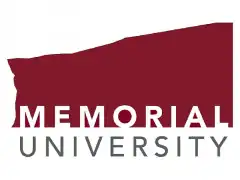PhD - Linguistics
- 4 years
- Duration
- 17,988 CAD
- Price
- Rolling admission
- Start
- Rolling admission
- Deadline
- Phd
- Degree
- Campus
- Format
- St. John's / Canada
- Location
Program description
The Department of Linguistics emphasises data-driven, theoretically informed work into aboriginal languages, linguistic diversity and change, and language learning. Our graduate programmes start with a strong theoretical foundation (phonology, syntax, morphology, etc.) and expand from there. From both theoretical and experimental perspectives, research expertise and supervision are provided in first and second language acquisition, speech disorders, and acoustic and articulatory phonetics.
Specialization languages include eastern Canadian aboriginal languages (Algonquian, Inuktitut, and Iroquoian), as well as local variations of English and French and their British/European origins. Students are encouraged to participate in one of the department's distinctive research initiatives. The Chisasibi Child Language Acquisition Study (CCLAS) investigates how Cree becomes a first language. The study Allophony in Newfoundland English, which focuses on speech perception and production across Newfoundland English variants, investigates the local consequences of urbanisation and rapid social development. The MUSL (Memorial University Sociolinguistics Laboratory) website provides information on ongoing research initiatives on language diversity and the interactions between language and society. Three dedicated laboratories (MUSL, Aboriginal Languages Research Laboratory, and Speech Sciences and Language Acquisition Laboratory) provide the space and resources required to perform cutting-edge research in the areas in which we specialise.
Languages taught in the Linguistics Department and encouraged for graduate research include Algonquian (Montagnais/Naskapi, Cree), Inuktitut, and Iroquoian (Cayuga). Memorial also provides classes in English, French, German, Russian, and Spanish. The Linguistics Department offers courses in Irish and Japanese.
Courses, a comprehensive exam, and a thesis are all part of the PhD programme. It usually takes four years of full-time education to finish.
Program structure
- Structure of a North American Indigenous Language
- Structure of an Uncommonly-Taught Language
- Issues in Morphosyntax
- Selected Topics in Transformational Grammar
- Topics in the Syntax of a Selected Language
- Principles of Language Acquisition
- Selected Topics in Language Acquisition
- Phonological Theory
- Selected Topics in Phonology
- Sociolinguistics
- Selected Topics in Language and Gender
- Areal and Temporal Variations in Language
- Special Subjects
- Comparative and Historical Linguistics
- English Dialectology I
- English Dialectology II
- Selected Topics in Linguistic Variation
- Field Methods
- Modern Linguistic Theories
- Experimental Phonetics
- Selected Topics in Experimental Phonetics
- Selected Topics in Morphology
- Selected Topics in Semantics
- M.A. Research Project
- Seminar in Research Methods
- Analytical Issues in Linguistics
- Topics in North American Native Languages
- Advanced Topics in Syntax
- Seminar in Comparative and Historical Linguistics
- Seminar in Linguistic Variation
- Seminar in Morpho-semantics
- Special Topics in Linguistics
Price
- Tuition — 17,988 CAD
OTHER FEES (REQUIRED) amounts listed are for two semesters
- Student Services Fee — 150 CAD
- Students' Union — 100 CAD
- Recreation Fee — 220 CAD
- Health Insurance — 560 CAD
Requirements for applicants
- Master’s degree in Linguistics. An MA in Applied Linguistics does not qualify for entry to the PhD program
Applicants who did not complete a baccalaureate or post-graduate degree at a recognized university where English is the primary language of instruction must normally complete either the:
- Test of English as a Foreign Language (TOEFL) and achieve a paper-based score of 580 (or higher), computer-based score of 237 (or higher), or internet-based score of 92-93 (or higher); or
- International English Language Testing System (IELTS) and achieve a score of 7 (or higher).
About the university

Memorial University has a unique responsibility to the people of Newfoundland and Labrador as the only university in the province. Memorial University was founded as a tribute to the Newfoundlanders who gave their lives in military duty during globe War I and later conflicts. We take inspiration from their efforts to create a better future for our province, our country, and the globe.
Over 115 different nations are represented among Memorial University's 19000+ students. Programs range from the traditional to the cutting edge, and can be found at any of Memorial's five locations or online. Memorial University's worldwide network of nearly 100,000 successful alums enhances the institution's capacity and reputation for leadership in research, teaching, and public engagement. Learn more about Memorial University in this quick read.
Vision, Mission
- Vision — Memorial University will rise to prominence as one of Canada's and the world's top public institutions of higher learning, and it will honor its commitment to serving the people of Newfoundland and Labrador.
- Mission — When it comes to education, research, scholarship, creative activity, service, and public engagement, Memorial University is committed to being at the forefront of innovation and excellence. International students and scholars are welcomed and supported at Memorial, and the institution's contributions of knowledge and experience are valued on all levels of society.
Campuses
More than 19,400 students and 3,800 teachers and staff from more than 115 countries study, teach, conduct research, create, and participate in activities at our campuses and other locations. You can attend classes at one of Memorial University's several campuses in Newfoundland and Labrador or anywhere in the world; we also offer 475 courses online.
- St. John's campus
- Grenfell Campus
- Marine Institute
- Harlow Campus
- Signal Hill Campus
- Labrador Campus
Read more about Memorial University, Newfoundland and Labrador, Canada





